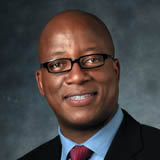National Gay Men's HIV/AIDS Awareness Day
HIV Policy & Programs | September 27, 2012
By Kevin Fenton, M.D., Ph.D., FFPH , Director, National Center for HIV/AIDS, Viral Hepatitis, STD, and TB Prevention , CDC , @CDC_DrFenton
 September 27, 2012 - Each year on September 27 we observe National Gay Men's HIV/AIDS Awareness
Day (NGMHAAD) to reflect on, and recommit to reducing, the heavy toll that HIV continues to take on gay and bisexual men, who
remain at the epicenter of the U.S. HIV epidemic.
September 27, 2012 - Each year on September 27 we observe National Gay Men's HIV/AIDS Awareness
Day (NGMHAAD) to reflect on, and recommit to reducing, the heavy toll that HIV continues to take on gay and bisexual men, who
remain at the epicenter of the U.S. HIV epidemic.
New HIV Infections
HIV affects all segments of American society-individuals, families, and communities-and does not discriminate across race,
gender, or age. However, since the beginning of the epidemic in the United States, gay and bisexual men-referred to as
men who have sex with men (MSM) in CDC data systems-have been hardest hit by HIV, and HIV continues to threaten their health.
In fact, gay and bisexual men who represent approximately 2% of the U.S. population, accounted for 61% of all
new HIV infections, and MSM with a history of injection drug use accounted for an additional 3% of new infections in 2009.
These estimates of new HIV infections among MSM have remained stable overall in the most recent years from which
incidence data is available-2006-2009.
From 2006 to 2009, new HIV infections among MSM aged 13-29 years increased about 34%, and among black/African American
MSM in that age group new HIV infections increased about 48%. In 2009, about 22% of new infections among MSM were among young
black/African American MSM, the highest number of new infections among any age or race/ethnicity group of MSM. These
numbers are disturbing and unacceptable.
Reaching Those at Risk
CDC's high-impact prevention approach ensures
resources are directed to activities that will have the greatest effect on reducing HIV among gay and bisexual men. For example,
last year CDC awarded 5-year grants to 34 community-based organizations to expand HIV prevention services for young gay and
bisexual men of color, transgender youth of color, and their partners.
Furthermore, CDC aimed to scale up HIV testing among African Americans and Latinos through its MSM testing initiative.
The goal of the initiative is to establish and evaluate an HIV testing and linkage to care program to identify HIV-infected MSM
previously unaware of their infection and link them to HIV medical care.
To raise awareness about the threat of HIV to the health of gay and bisexual men, CDC has released
two Act Against AIDS campaigns that include messages
for gay and bisexual men. The first, Testing Makes Us Stronger, encourages black gay and bisexual men to get
tested for HIV. The campaign includes national and local advertising, materials distribution in targeted
cities, a Facebook page,
and a dedicated website . The
Let's Stop HIV Together campaign
raises awareness about HIV and its impact on the lives of all Americans, and fights stigma by showing that people living with
HIV come from all walks of life. They are mothers, fathers, friends, brothers, sisters, sons, daughters, partners, wives, and
husbands.
Fighting the Epidemic
The gay community once led the nation to fight the spread of HIV and AIDS-today is a day to recommit to the fight. We all have
a personal responsibility to know our HIV status, protect our health and the health of our loved ones and our communities.
CDC recommends sexually active gay and bisexual men be tested for HIV infection at least annually. CDC suggests more
frequent testing (every 3 to 6 months) for gay and bisexual men at high risk-including those who have multiple or anonymous
partners, who have sex in conjunction with illicit drug use, or whose partners participate in these activities. To
find overall health information for gay and bisexual men, go to: www.cdc.gov/msmhealth .
To find additional information about National Gay Men's HIV/AIDS Awareness Day and resources for action
visit http://www.cdc.gov/Features/NGMHAAD/
###
Source:http://blog.aids.gov/2012/09/national-gay-mens-hivaids-awareness-day-2.html
For more HIV and AIDS News visit...
Positively Positive - Living with HIV/AIDS:
HIV/AIDS News
|